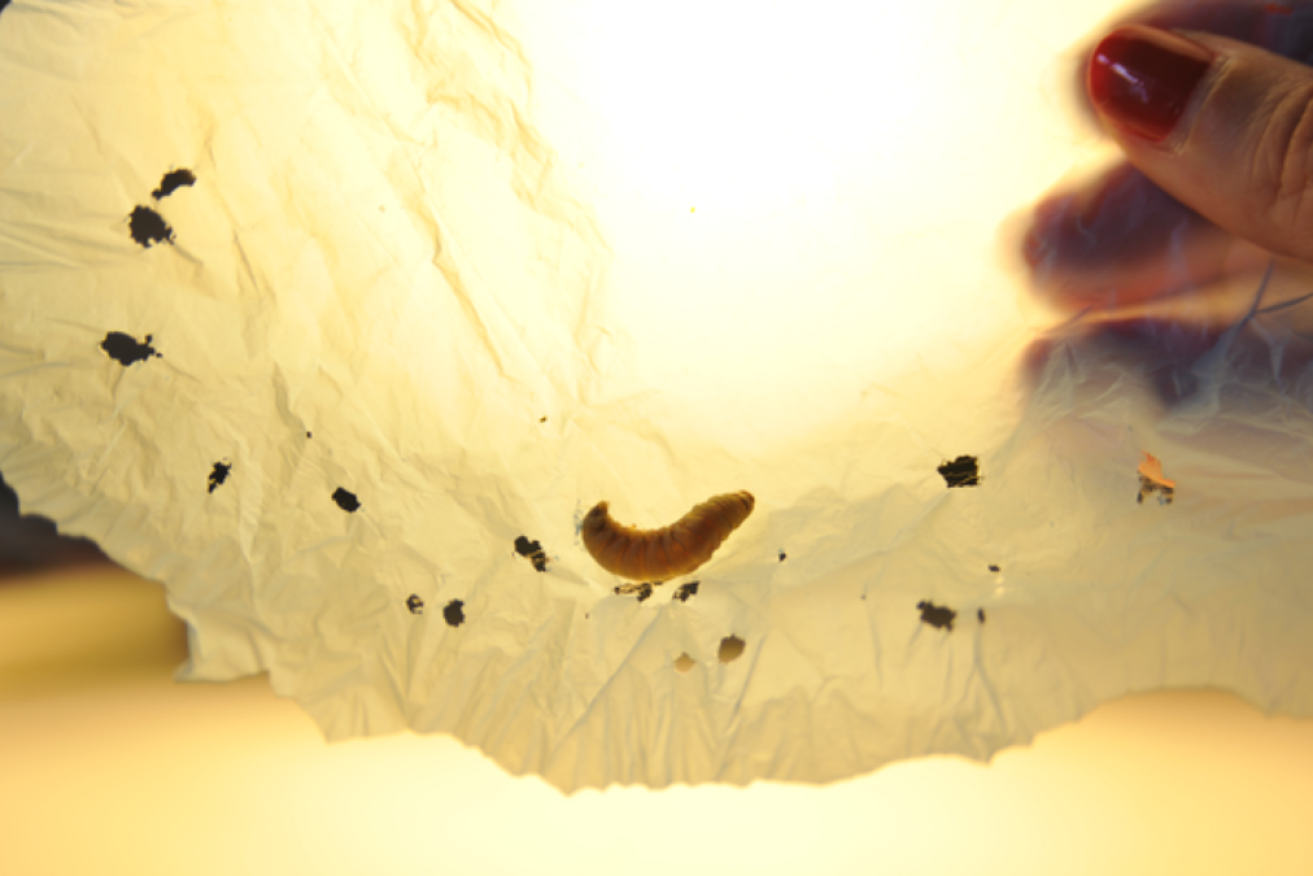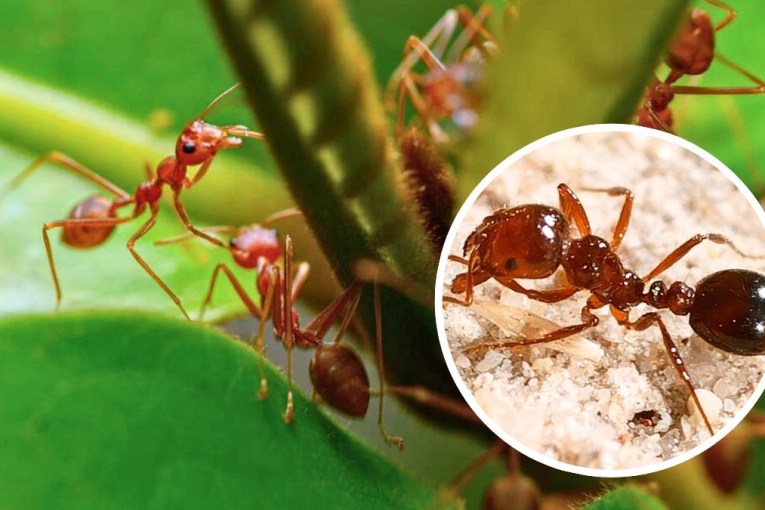The humble grub that could solve – and dissolve – our growing plastic problem


Researchers say the saliva of wax worms could revolutionise the way we look at plastic waste. Photo: CSIC/Cesar Hernandez
A small and unassuming insect could potentially revolutionise the way we look at plastic disposal – all thanks to the magic of enzymes.
Researchers from the Spanish National Research Council (CSIC) this week announced they discovered that the saliva of the wax worm has the ability to break down plastic.
The researches found that saliva from the wax worm (Galleria mellonella) can degrade polythelene plastic within hours at room temperature. The findings were first published in the journal of Nature Communications.
Polythelene is used in mountains of household products including garbage and shopping bags, insulation, bottles and cartons.
Over 100 million tonnes of polyethlene resins are produced every year, accounting for 34 per cent of the total plastics market.
Polythelene is notoriously stubborn, with products taking decades, and sometimes centuries, to fully decompose.
The wax worm – larvae of the greater wax moth – is well known as a parasite of honeybees and their hives. Eggs laid among the bee hives hatch, with the worms feeding on the wax comb and honey.
The wax worm’s destructive ability was discovered after researcher Frederica Bertocchi – an avid beekeeper – found a damaged plastic bag in one of her infested hives.
She initially thought wax worms must have bitten and ingested the bag.
Two active enzymes
But after years of research, her team has deduced that it was the enzymes in the wax worm’s saliva that eroded the plastic.
The researchers identified two enzymes – Demetra and Ceres – that could reproduce the oxidation caused by the worm’s whole saliva.
They found the enzymes were able to oxidise and break down plastic polymers in as little as one hour – which could completely revolutionise the way we think about plastic waste.
“We have now discovered that the enzymes in the saliva of the wax worm perform this crucial step: they oxidize the plastic . Thus, they make it possible to overcome the bottleneck of plastic degradation and accelerate its decomposition,” Ms Bertocchi said.
The researchers are yet to narrow down how the enzymes would be used on a commercial scale, with the results of their research still pending review.
But they say the idea would be to produce the enzymes synthetically, which they have already achieved, in order to apply to the plastics.








